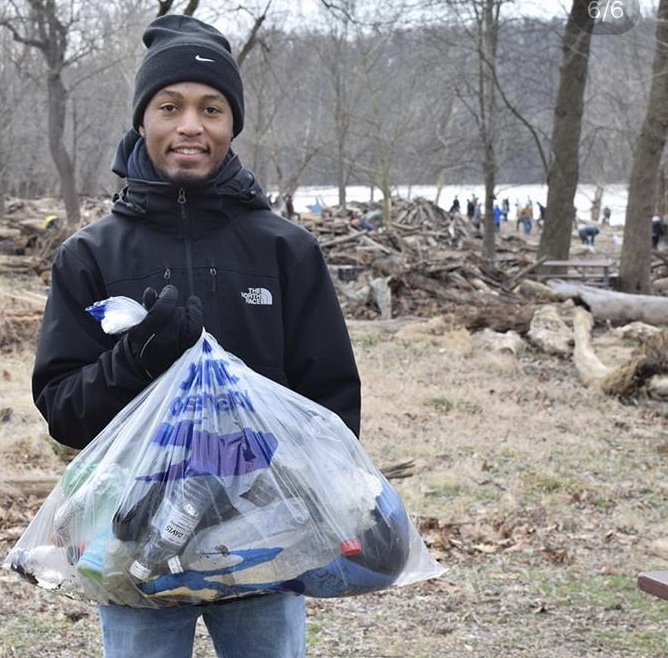By Ronnie Townsend, a Mercy Volunteer Corps alumnus who served at St. Michaels Navajo Reservation in Arizona (Navajo Nation)
As the election approaches, I will choose which candidates to vote for not just based on their political party, but on what it is that these candidates stand for. What kinds of issues have they advocated throughout their political career, and will they be able to positively impact my life and the broader life of communities as a whole? Often when people vote, it is in a black-and-white way, voting based on political parties and not looking at the bigger picture: Does this candidate represent and advocate things that you would like to see changed in the future? Asking these key questions helps me to decide on a candidate to support.
This year, several issues are particularly important to me, including immigration. The United States is a melting pot at its core and people have come to this country from all over the world in search of a better life and opportunities for their children. Our country should continue to keep these gateways open and allow people who are in search of this better life to migrate here. It is also important to remember that most people in the United States are descendants of people who immigrated to this country at some point. When considering this, greater empathy can be developed towards immigrants as a whole.

Environmentalism is also very important to me, and I like to remind myself and others that we have only one Earth. Teaching children about picking up litter and being aware of how much they are consuming is powerful knowledge that can be passed down through the generations. Simple habits can generate broad change, and educating kids today for the future is a key part of that change. Recently, I have been doing river conservation and picking up trash alongside the water as well as reaching out to stage legislators to establish laws that protect the waterways and woodlands in my home state of Maryland. We have no idea just how powerful our voices are!
Food insecurity is a key issue related to environmentalism. Thousands and thousands of pounds are wasted and thrown away every day. It is important to make sure that this food is being redistributed in an ethical manner, and that it can be given to food banks and homeless shelters, turning a problem into a solution.
Regarding these and other issues, I often try to have conversations with family and friends who differ from me economically, socially and ethnically. What is amazing is that there is a bridge that is crossed during these conversations that gives you a window into a person’s life and the troubles they may have. I have friends who don’t have running water, or who have to walk a mile to an outhouse to use the bathroom at night, and I have listened to these friends and family share about the things that are most important to them and the changes they would like to see take place in our country. By listening and having these powerful conversations, we stimulate awareness, and awareness brings about change.
While I will be voting based on my vision for the country, I also respect the votes of others and must take into account what will benefit society as a whole. It isn’t just about me, but about everyone as a collective. We are all in this game of life together. The younger generations are looking up to us, and we must set an example for them!
Ultimately, voting on a local, state and national scale is important because it enables your voice to be heard and contributes to a process that can better our nation in the long run. Be aware of and know just how powerful your voice truly is. No matter how young or how old you are, your voice counts.